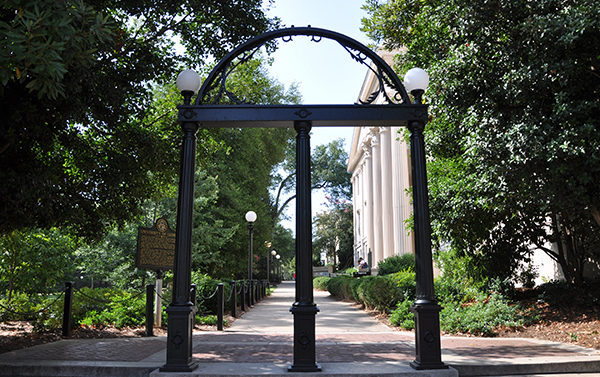It is the duty of the old to share their experience with the young. It is not the duty of the young to listen.
Nevertheless, our young students are returning to a University of Georgia quite different from the one they left in March, with the very real possibility that the university may be further diminished in response to the pandemic threatening business as usual.
My duty here is to reassure our young scholars that the potential diminishment of their college need not impinge upon their thoughts as they hurry to ingest as much alcohol by midnight as they formerly did by 2 a.m.
The UGA I knew, compared to today’s was the very definition of diminished.
Let’s start at the top. When I matriculated at our dear old alma mater, the university had only the president—no vice presidents, no provosts. Enrollment was 5,000. Today’s UGA has, in addition to the president, 10 vice presidents and, in addition to the provost, two vice provosts and six associate provosts. That is 20 highly paid administrators and their staffs to run the university. UGA’s enrollment last fall was 39,000.
In other words, 20 times more administrators manage eight times more students.
I counted 73 uniformed officers in the staff photo on the UGA police website. My university had only one campus policeman, Dusty. He patrolled mainly at night. His uniform was a gray work shirt and matching trousers, with his .38 revolver stuck in his hip pocket.
We did have the Dawgs, and the stadium was still its original natural bowl shape—no upper decks, no skyboxes and no bridge. The science center was building on south campus, and to get over there, you had to go down a long flight of steps and then up the other side—quite a feat to accomplish between classes. There was no bus system, so between classes students got out on Lumpkin Street and hitchhiked. At least the women did, because they got all the rides, anyway. There were local people who had the class schedules memorized and always went out of their way to cruise Lumpkin at the top of the hour.
There was no legal whiskey and only a couple of bars where you could get a beer. I didn’t expect one at the Methodist student center. No clubs. A couple of restaurants downtown and a few more scattered around Normaltown, Five Points and the Atlanta Highway.
Men could have apartments. Women could not and could not visit men in theirs. Women could not wear shorts on campus, unless covered by a raincoat, and then only for the purpose of P.E. classes. Women had to be back in their dorms by 11:15 p.m., slightly later on weekends. There were no luxury high-rise dorms.
There were no admission requirements, other than graduating from high school and being white. (Charlayne Hunter and Hamilton Holmes arrived my junior year). There was no Hope Scholarship but relatively low tuition.
The real enforcer on campus was Dean William Tate, the scourge of any student doing anything wrong. When Dean Tate demanded your student I.D., you had to surrender it, and you had to drop by his office for a chat.
If he kept your I.D., you were out of school. No appeal to higher authority.
Sure, this is all nostalgia, but it is a cautionary tale, too. The pandemic has already changed things, and we don’t yet know what lies ahead. Will we have the Dawgs? Will we continue with on-campus classes? Will the bars remain open? Will students drift away to other colleges with bars and football? Can the university sustain 20 top administrators? Will the Terry College of Business secede from the university?
Only time will tell, but I am here to bear witness to the fact that the University of Georgia can adjust and continue to deliver a first-class education as long as teachers can teach—by whatever method—and students can learn in some meaningful form, whatever that may turn out to be in the long run.
In the short run, welcome back to Athens and to a whole new ball game, or maybe no ball games. Everything is up in the air as never before at the university and in Athens, but the main enterprise remains teaching and learning. Stay safe, and do what it takes to get an education and enjoy our college town.
Like what you just read? Support Flagpole by making a donation today. Every dollar you give helps fund our ongoing mission to provide Athens with quality, independent journalism.










